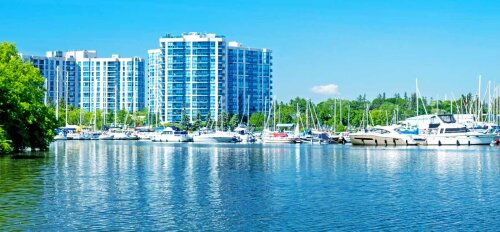Best Oil, Gas & Energy Lawyers in Whitby
Share your needs with us, get contacted by law firms.
Free. Takes 2 min.
List of the best lawyers in Whitby, Canada
About Oil, Gas & Energy Law in Whitby, Canada
Whitby, situated in Ontario’s Durham Region, is not known as a primary hub for oil and gas production, but it does play a role in Ontario’s broader energy sector. The region connects to various aspects of Canada’s diverse energy industry, including oil and gas distribution, renewable energy initiatives, energy infrastructure development, and regulatory compliance. Oil, gas, and energy law in Whitby focuses on the legal frameworks that govern exploration, extraction, distribution, sales, and consumption of energy resources. This legal field also encompasses environmental standards and land use related to energy developments, whether involving traditional fossil fuels or clean energy alternatives.
Why You May Need a Lawyer
Legal challenges in the oil, gas, and energy sector can be complex and wide-ranging. You may need a lawyer if you are:
- Negotiating land use or lease agreements for energy infrastructure or pipelines.
- Managing property rights and mineral royalties.
- Dealing with disputes over environmental impact, remediation, or regulatory compliance.
- Working through contracts for oil, gas, or renewable energy sales.
- Pursuing permits or licenses for energy projects.
- Addressing liability in case of accidents, leaks, or spills.
- Involved in energy project financing or investment matters.
- Connecting renewable energy (solar, wind) installations to the grid.
Due to the technical and highly regulated nature of the energy sector, legal advice ensures that your rights are protected and obligations understood.
Local Laws Overview
Although Whitby itself is not a site for major oil or gas extraction, local laws, as governed by the Province of Ontario and the Municipality of Whitby, play a significant role regarding energy regulation, land use, and environmental protection. Key legal considerations include:
- Ontario Energy Board (OEB) Regulation: Oversees licensing, distribution, and pricing for electricity and natural gas.
- Environmental Protection Act (EPA): Provincial law regulating emissions, spills, and site remediation for energy projects.
- Planning Act and Municipal Zoning: Controls land use for pipelines, substations, and renewable energy developments.
- Rights-of-Way & Easements: Governed by provincial rules, impacting where energy infrastructure can be built.
- Conservation Authorities: Regulate development in sensitive areas such as waterways and wetlands.
- Federal Jurisdiction: For cross-provincial pipelines, the Canada Energy Regulator (CER) and federal environmental assessment laws may apply.
Compliance with these local and provincial laws is mandatory for any party seeking to engage in oil, gas, or energy-related activities in Whitby.
Frequently Asked Questions
What sources of energy are most relevant in Whitby?
Whitby primarily relies on natural gas and electricity, with growing interest in renewables such as solar and wind. Oil is mainly relevant for transportation and heating.
Can I install solar panels or wind turbines on my property?
Yes, but you must comply with municipal zoning by-laws and may need specific permits or approvals. Connection to the grid also involves Ontario Energy Board regulations.
Who regulates energy utilities in Whitby?
The Ontario Energy Board (OEB) regulates electricity and natural gas distribution, consumer protection, and utility rates within Ontario, including Whitby.
What are my rights regarding pipelines or powerlines on my land?
Landowners have legal rights and may be entitled to compensation if pipelines, powerlines, or similar infrastructure cross their property. Negotiating easements with utility companies often requires legal guidance.
What should I do in case of an oil or gas spill?
Immediately report spills to the Ontario Ministry of the Environment, Conservation and Parks. There are legal requirements for cleanup and notification, and you may need legal support for liability and regulatory compliance.
Are there incentives for renewable energy development locally?
Ontario provides incentives and policies for renewable energy, like net metering and grants. Local programs may be available through the municipality or provincial initiatives.
Can energy disputes be resolved without going to court?
Yes. Many disputes can be settled through negotiation, mediation, or arbitration. The Ontario Energy Board provides avenues for certain utility complaints and resolutions.
Do I need environmental approvals for energy projects?
Most energy projects require environmental assessments and approvals at the provincial or potentially municipal level, especially if there are land disturbances or emissions involved.
How are energy rates determined in Whitby?
The Ontario Energy Board sets or approves rates for regulated utilities, ensuring transparency and fairness for consumers and utility companies alike.
Who do I contact if I suspect non-compliance with energy or environmental laws?
You can contact the Ministry of the Environment, Conservation and Parks, the Ontario Energy Board, or local municipal authorities. Legal advice may be necessary if you wish to initiate formal complaints or actions.
Additional Resources
If you need more information or assistance, the following organizations can be helpful:
- Ontario Energy Board (OEB): Regulates energy utilities and provides consumer guidance.
- Ministry of Energy, Ontario: Responsible for provincial energy policy and planning.
- Ontario Ministry of the Environment, Conservation and Parks: Oversees environmental compliance and reporting.
- Durham Region Planning & Economic Development: Offers guidance on local planning, permits, and economic opportunities in energy.
- Canada Energy Regulator (CER): Handles interprovincial pipeline and energy transmission matters.
- Whitby Municipal Office: Source for local zoning, permits, and development applications.
- Local Law Societies or Bar Association: To find qualified lawyers in oil, gas, and energy law.
Next Steps
If you need legal assistance for oil, gas, or energy matters in Whitby:
- Identify the nature of your legal issue-whether it is related to contracts, land use, regulatory compliance, or environmental protection.
- Gather all relevant documents, permits, correspondence, and details regarding your issue.
- Consult with a qualified lawyer who specializes in oil, gas, and energy law. Use local resources such as the Durham Region Law Association or the Law Society of Ontario’s lawyer directory.
- Contact relevant regulatory bodies (such as OEB or the Ministry of Environment) if your situation requires their involvement or reporting.
- Follow your lawyer’s guidance regarding negotiations, dispute resolution, or court proceedings, if necessary.
- If needed, stay informed about opportunities for mediation or alternative dispute resolution to resolve issues efficiently.
Addressing oil, gas, and energy issues with the aid of a knowledgeable lawyer ensures compliance with local and provincial laws, protects your rights, and helps you achieve the best possible outcome.
Lawzana helps you find the best lawyers and law firms in Whitby through a curated and pre-screened list of qualified legal professionals. Our platform offers rankings and detailed profiles of attorneys and law firms, allowing you to compare based on practice areas, including Oil, Gas & Energy, experience, and client feedback.
Each profile includes a description of the firm's areas of practice, client reviews, team members and partners, year of establishment, spoken languages, office locations, contact information, social media presence, and any published articles or resources. Most firms on our platform speak English and are experienced in both local and international legal matters.
Get a quote from top-rated law firms in Whitby, Canada — quickly, securely, and without unnecessary hassle.
Disclaimer:
The information provided on this page is for general informational purposes only and does not constitute legal advice. While we strive to ensure the accuracy and relevance of the content, legal information may change over time, and interpretations of the law can vary. You should always consult with a qualified legal professional for advice specific to your situation.
We disclaim all liability for actions taken or not taken based on the content of this page. If you believe any information is incorrect or outdated, please contact us, and we will review and update it where appropriate.









